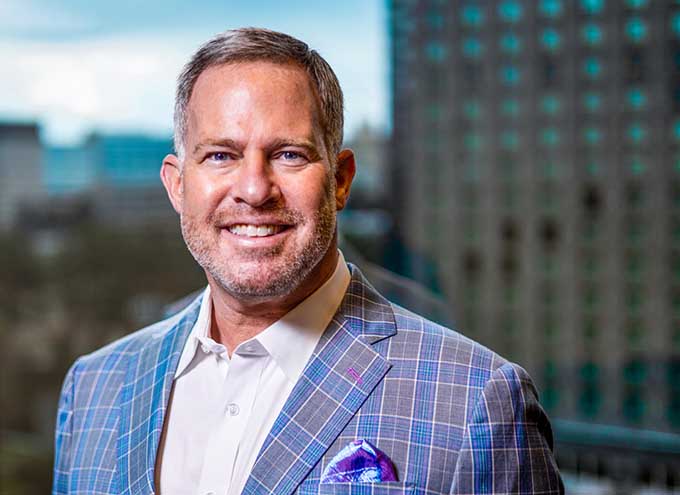Creating Healthy Connection in a Remote World
December 6, 2023
At a glance:
- The main takeaway: Although many companies have instituted successful remote work arrangements, there is still room for improvement, particularly when it comes to culture and connection.
- Impact on your business: As you look ahead and plan your hiring goals for 2024, there are strategies you can introduce to foster greater connection and collaboration among your hybrid and remote teams.
- Next steps: Aprio Talent Solutions can provide the consultative expertise and resources you need to hire the right remote workers to meet your business’s needs.
Schedule a consultation
The full story:
There is no denying that remote work has opened a whole new world of flexibility and convenience for employees and employers alike. A recent survey compiled by Upwork shows just how impactful remote work has been since gaining a foothold during the height of the COVID-19 pandemic — most notably, 32.6 million Americans will be working remotely by 2025.
Although companies are reporting higher levels of productivity and employee satisfaction with the introduction of remote and hybrid work arrangements, there is still room for improvement, particularly when it comes to culture and connection.
According to Forbes Advisor, 53% of remote workers say it’s harder to feel connected to their co-workers, particularly those who work together in-person. This suggests that some companies have not adjusted their employee engagement programs, procedures and even tools to better accommodate their remote staff.
As you look ahead and plan your hiring goals for 2024, here are a few strategies to foster greater connection and collaboration among your hybrid and remote workforce.
Get rid of the “remote worker” label
This strategy may sound counterintuitive or confusing but stick with me for a moment.
Most corporate settings reflect notions of how employees have worked traditionally; so creating a more inclusive, connected environment that also caters to remote workers requires a paradigm shift. Challenge yourself to stop labeling your employees based on their work arrangements. Instead, start thinking about the policies and procedures that will allow all employees to do their best work.
For instance, help train your supervisors to adopt management styles that emphasize flexibility — from providing best practices for hosting virtual meetings to offering scheduling that works for all time zones. Avoid bucketing your employees into categories based on geographic location and instead foster an internal culture that embraces all the different traits that make remote work so appealing in the first place.
Remember that engagement isn’t a once-and-done endeavor
Autonomy is one of the perks that employees often cite they like most about remote work arrangements. But it’s important not to conflate autonomy with passiveness. In other words, make sure that you’re not leaving your remote workers on an island of heads-down productivity. Be proactive in your approach to engaging your remote staff in professional development opportunities and team strategy sessions so that they feel connected to their fellow employees and the vision of the organization at large.
In addition, keep in mind that engagement starts on the first day of work. Make sure that your onboarding process is fully optimized for both in-person and remote workers — offering opportunities for team members to connect virtually, orient themselves with the organizational and internal team structures, and access resources and tools that are essential to perform their duties. Remove barriers to entry and regularly solicit input from your remote team about what is working and what isn’t so you can adjust your processes and procedures accordingly.
Offer safe spaces and platforms for sharing feedback
Starting crucial, sensitive conversations can be difficult in-person, let alone over Teams, Slack or Zoom. With the advent of remote work, more thought leaders in the human resources space have broached the topic of “psychological safety,” a term initially coined by Harvard professor Amy Edmonson.
The concept takes on a whole new meaning for teams that are digitally driven. According to Edmonson, psychological safety is a shared belief that a team is safe for interpersonal honesty. A psychologically safe team means that all employees — regardless of their work arrangement — feel confident in raising their voices, sharing creative ideas, and offering constructive criticism without the fear that they will be punished or admonished.
Once you have committed to employing remote workers, you need to go above and beyond to ensure there are ample touchpoints that instill psychological safety. Whether it is biweekly or monthly check-in calls that allow employees to speak freely, or engagement surveys that allow employees to share their thoughts privately, provide safe outlets for feedback that are tailored to the unique needs of each individual employee.
The bottom line
Navigating the balance of how your staff works now may feel daunting, but it doesn’t have to be. Leverage Aprio Talent Solutions’ deep expertise across a broad range of industries to drive transformative growth within your organization. If you are in the market to hire new remote or hybrid workers (which can give you more quality and cost-effective options to attract top talent), our industry subject matter experts vet professionals with relevant experience in your sector to help you react quickly to industry trends and growth opportunities.
Click here to schedule a consultation with our team today.
Related Resources
Does Remote Work Still Work for Your Business?
3 Ways to Create a Successful Remote Work Environment
Culture fit conversations: Recruiting, interviewing and getting to the mutual “I do’s”
Stay informed with Aprio.
Get industry news and leading insights delivered straight to your inbox.
Recent Articles
About the Author
Mitchell Nelson
I provide advisory and digital transformation and IT solutions to businesses of all sizes — from start-ups to Fortune 500 companies. I advise C-level executives and key business decision-makers, as well as technology, sales and marketing professionals. My solutions are relevant to any industry, but I primarily focus on the healthcare, financial services, consumer goods, manufacturing and retail sectors.

